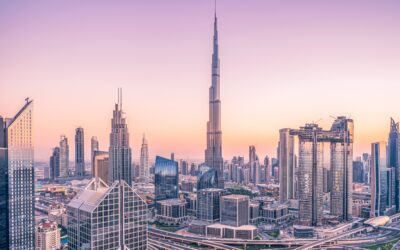Dear reader,
even if the situation on the labour market begins to gradually stabilize again, employers can still access a large pool of external candidates when filling their key positions. Nevertheless, the competition for the best talents continues.
Despite the “more relaxed” candidate market, many companies still find it difficult to attract the right candidates. In order to identify the reasons for this, it is important to understand the decision-making process of potential candidates:
Currently, two main topics are particularly important to employees: workplace-/ crisis security and climate protection.
Especially in times of crisis, job security is a decisive factor when choosing an employer. Decisive factors for this are a conclusive corporate strategy as well as a high management quality of the company’s executives.
Resilient and consistent management (referring to the article “With resilience through the crisis” from 8 July 2020) not only creates a positive working and trusting climate and thus a high level of employee loyalty, but also contributes to the company’s crisis and job security.
Speaking of leadership, a boss who is actively and personally committed to climate protection and sustainability and who also exemplifies this is another important reason for many candidates to choose the company as an employer. Because climate protection is still a hot topic it moves not only young professionals but employees of all ages.
Job seekers are increasingly paying attention to the values of a company, which above all are revealed on social media and on their own website.
By the way: According to a study, over 60% of all German companies are described as being very environmentally conscious by their employees. If you do not have this positive characteristic, it is very difficult to fight for talent.
When it comes to the question of what else can attract talented candidates, benefits are high on the list. Interesting here is the fact that material benefits (like a chic company car) are increasingly exceeded by immaterial advantages. For example, companies that invest in the health of their employees are very high in the course.
A resource-saving, well-thought-out hygiene concept (e.g. disinfection dispensers at all entrances) is particularly attractive today, whilst new work concepts are currently a bit behind in priority. The right balance between private life and work – and the meaningfulness of the latter – are still highly relevant topics, but COVID-19 has changed the way we look at these factors.
The home office, in particular, has lost its charm due to the “forced introduction” due to corona, since the restrictions on social contacts put more strain on employees than previously thought. It remains questionable whether the number of home office days will be a decisive argument for the job decision in the future.
Summarised: Companies are perceived as attractive employers if they openly market their strengths and put their own climate and health protection initiatives in the focus. The same applies to a clear corporate strategy and a safe resilient management culture, which is reflected in a positive company climate.
Further contributions:
Spotting UAE – Business talks with INAC Partner Lobo Management in Dubai
A warm welcome – Lothar Grünewald visited Lobo Management, our INAC Partner in UAE
read moreSpotting Sweden – Business talks with INAC Partner People Impact
The land of a thousand lakes – Lothar Grünewald visited People Impact, one of our Swedish INAC Partners and discussed about business opportunities.
read moreWith resilience through the crisis
A lot has always been expected of managers. But now the virus challenges them even more. Steadfastness and resistance are one of the expectations of a manager.
read more



